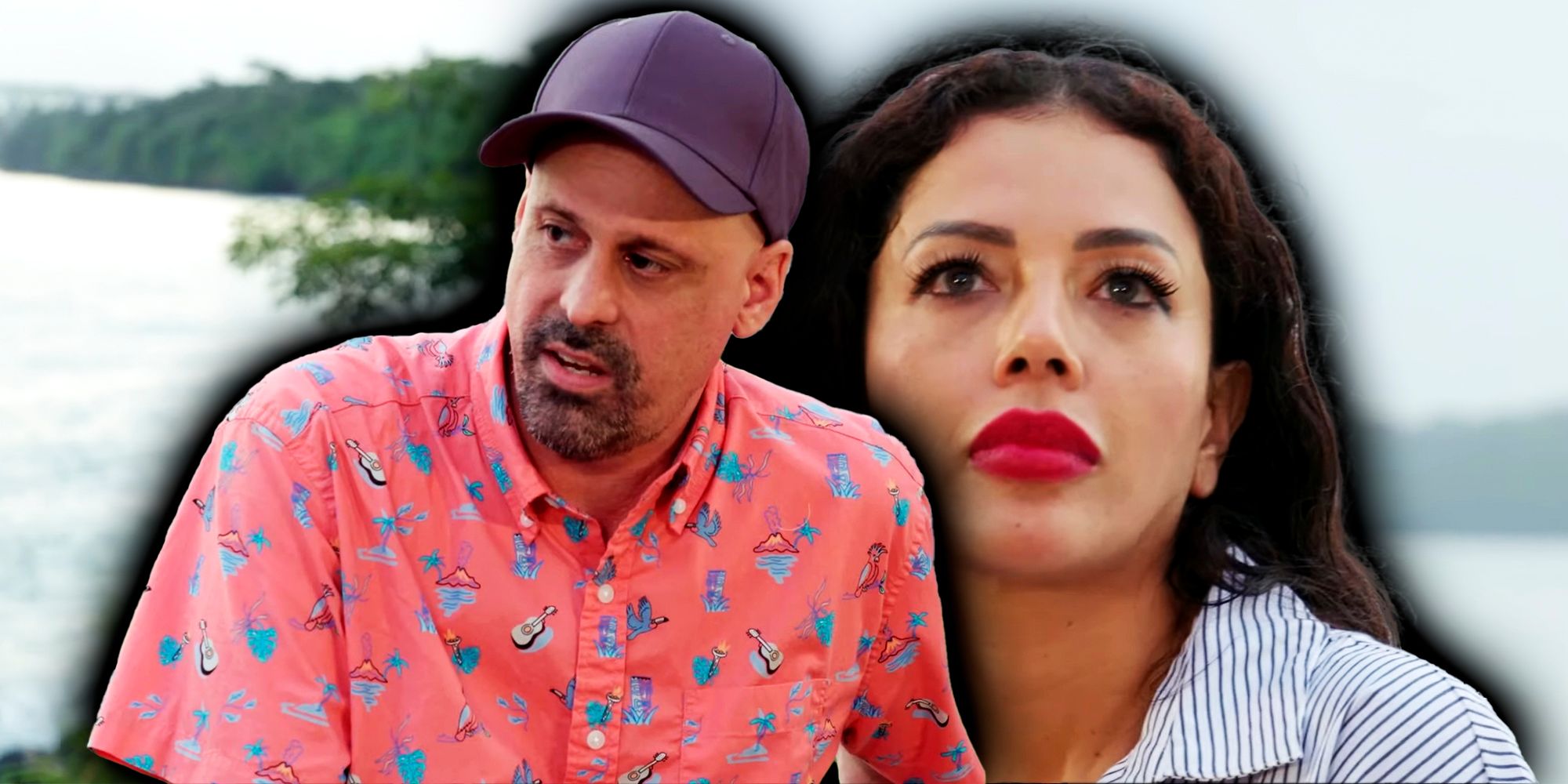What Happened Between Jasmine And Gino? Understanding Past Events Through Language
Many of us, it seems, just love to keep up with the stories of people we see on TV, especially when it comes to their relationships. There's a certain pull, isn't there, to know the ins and outs, the ups and downs, of couples like Jasmine and Gino? People are often very curious about what unfolded between them, and that's totally understandable, you know?
When we want to figure out what went on, we're really looking for a clear picture of past events. It's like putting together a puzzle, trying to piece together all the moments that led to where things are now. We ask "what happened?" because we want the full story, the sequence of events, and perhaps, the feelings involved.
Interestingly, while we can't share the specific details of Jasmine and Gino's journey from "My text" – because that particular text focuses on how we use language – we can definitely explore how we talk about things that happened. Learning how to properly describe past actions and events is, in a way, pretty important for anyone trying to get the full picture, or even share their own experiences. So, let's look at how language helps us make sense of past occurrences, actually.
Table of Contents
- Who Are Jasmine and Gino? (And Why "My Text" Doesn't Tell Us Everything)
- Talking About the Past: Lessons from Language
- Understanding Simple Past Tense
- Recalling Memories: A Trip Down Memory Lane
- When Plans Shift: Rescheduling and Communication
- Just and Only: Subtle Differences in Describing Events
- Navigating Time and Place: Using "In," "On," and "At"
- What If? Exploring Conditional Sentences
- The Joy of Good Deeds: Making Someone Happy
- Common Questions About "What Happened?"
- Looking Ahead: Continuing Your Language Journey
Who Are Jasmine and Gino? (And Why "My Text" Doesn't Tell Us Everything)
When people ask "What happened between Jasmine and Gino?", they're usually thinking about a specific couple known from reality television. They're often interested in their relationship's twists and turns, their arguments, their happy moments, and whether they're still together today, you know? It's a common query that pops up quite a bit.
However, it's really important to mention that "My text," the source we're using here, focuses entirely on English language concepts. It doesn't contain any personal details or biographical information about Jasmine and Gino themselves. So, while we can discuss *how* we talk about events, we can't provide their specific life story or relationship history from this particular text. This means we won't be able to fill out a table with their personal data based on the information provided, which is a bit of a limitation, obviously.
For those curious about their personal details, you'd typically look to entertainment news sources or fan wikis. Our focus here is more on the mechanics of discussing such happenings, if that makes sense. We're looking at the language tools we use to describe what went on, rather than the "who" and "what" of their story directly.
Talking About the Past: Lessons from Language
Understanding "what happened" often boils down to how we describe past events. Our "My text" offers some really useful insights into the building blocks of talking about things that are already done. It's almost like a guide to making sure our past-tense stories are clear and accurate, you know?
Understanding Simple Past Tense
A big part of talking about "what happened" involves using the simple past tense. Our text reminds us that words like "happend" are actually a spelling mistake for "happened." The simple past tense is used to talk about actions and events that both started and ended in the past, which is pretty fundamental. For instance, if someone asks what a couple did last Sunday, you might say, "They went to the park," or "They had a big talk." This tense helps us pinpoint specific finished actions, and that's quite useful, really.
It's about those moments that are now complete, perhaps like saying, "comí paella el domingo" (I ate paella on Sunday). This refers to a single, specific instance, not something that happened repeatedly. So, when you're explaining a specific event that occurred between Jasmine and Gino, you'd use this tense to make it clear it's a finished action. It's a key part of recounting events, actually.
Recalling Memories: A Trip Down Memory Lane
Sometimes, talking about "what happened" isn't just about stating facts; it's about remembering. Our text mentions the idiom "a trip down memory lane." This phrase describes an occasion when people recall or talk about things that took place in the past. For example, it says, "Every Christmas is a trip down memory lane for..." This suggests that certain times or events naturally bring up past happenings, which is a nice way to think about it.
When fans discuss Jasmine and Gino's past, they are, in a way, taking a collective trip down memory lane. They're remembering specific scenes, conversations, or decisions that shaped the couple's story. This idiom helps us understand that revisiting the past isn't just a dry recitation of facts; it often involves a feeling of nostalgia or reflection, too.
When Plans Shift: Rescheduling and Communication
Relationships, like any planned activity, can involve changes. Our text touches on what happens when plans need to shift, saying, "Message them to understand what happened and agree on a new date and time." This is pretty practical advice, isn't it?
This point highlights that when something unexpected "happened" to alter a plan, clear communication is essential. If, for instance, a scheduled meeting or a date between Jasmine and Gino got changed, understanding "what happened" to cause the change and then agreeing on a new arrangement would be key. It's about addressing the immediate past event that caused a disruption and then moving forward, which is a common part of life, more or less.
Just and Only: Subtle Differences in Describing Events
When we describe "what happened," the words we pick can really change the meaning. Our text points out that "just" and "only" are two words commonly used in English, and it explains how they're different. These small words can subtly alter the emphasis of a past event, so it's good to know how they work.
For example, saying someone "just arrived" means they arrived very recently. Saying they "only arrived" might imply they arrived but didn't do anything else. When discussing what happened between Jasmine and Gino, using these words precisely could highlight whether an event was recent, or if it was the sole action taken. It's a bit like adding a shade of meaning to the story, you know?
Navigating Time and Place: Using "In," "On," and "At"
Knowing exactly "what happened" often requires knowing "when" and "where" it happened. Our text offers a clear guide to using the prepositions "in," "on," and "at" for time and place. It says, "Learn the time and place to use each with helpful guidelines and examples." This is pretty fundamental for clarity, isn't it?
For instance, you might say an argument happened "in the living room" (place), "on Tuesday" (specific day), or "at 8 PM" (specific time). If you're trying to describe a particular event that occurred between Jasmine and Gino, getting these prepositions right helps paint a precise picture for anyone trying to understand the situation. It helps everyone visualize the scene, more or less.
What If? Exploring Conditional Sentences
Sometimes, when we talk about "what happened," we also think about "what *could have* happened." Our text goes over the five types of conditional sentences in English, giving examples and showing how to use them. These sentences let us explore hypothetical situations related to the past, which is rather interesting.
For example, if someone says, "If Gino had done X, then Y wouldn't have happened," they're using a conditional sentence to imagine a different past. This allows for speculation and discussion about choices and their outcomes, which is a big part of analyzing relationships. It lets us ponder alternative paths, which is pretty common when discussing past events, actually.
The Joy of Good Deeds: Making Someone Happy
Finally, our text includes an idiom that means someone has said or done something wonderful. It says, "It is an idiom meaning you have jus t said or done something great for me and that has made this day a very great and important one, You have made me happy today." This is a lovely sentiment, isn't it?
While we're talking about "what happened," it's worth remembering that not all past events are dramatic or challenging. Sometimes, "what happened" is something positive that made a real difference. If, for instance, one person in a relationship did something thoughtful for the other, that action would have "made them happy," creating a positive memory. This reminds us that the past holds all sorts of moments, both big and small, good and difficult, too.
Common Questions About "What Happened?"
When people ask "What happened between Jasmine and Gino?", they're usually looking for direct answers about their relationship status or key moments. While "My text" doesn't provide those specific answers, it does help us think about the *types* of questions we ask about past events and how we might answer them using clear language. Here are some common questions people often have about past situations, framed through a linguistic lens:
1. How do we clearly describe a past event?
You know, to really make it clear, we often use the simple past tense. This helps us pinpoint actions that began and ended at a specific time in the past. For instance, you'd say, "They discussed their future last night," to show a completed action. Using words that precisely describe the action and when it happened is key to being understood, obviously.
2. What's the best way to talk about changes in plans that happened?
When plans change, it's pretty important to explain what caused the shift. Our text suggests messaging to "understand what happened and agree on a new date and time." So, if a meeting or an event with Jasmine and Gino got rescheduled, you'd explain the reason for the initial change and then state the new arrangement. It's all about clear communication after something unexpected took place, you know?
3. How can we express hypothetical past situations?
Sometimes, we want to think about "what if" scenarios regarding past events. This is where conditional sentences come in handy, as our text mentions. You might say, "If they had communicated better, perhaps that argument wouldn't have happened." This allows for exploring different possibilities and outcomes based on actions that *could* have been taken, but weren't. It's a way to reflect on the past with a bit of a twist, actually.
Looking Ahead: Continuing Your Language Journey
So, while we couldn't give you the specific details of "What happened between Jasmine and Gino?" directly from "My text," we hope this look at language has been helpful. Understanding how we talk about past events, using proper tenses, idioms, and precise words, is incredibly useful for all sorts of conversations, not just about celebrity couples. It helps us communicate our own stories and understand others better, too. You can learn more about language structure on our site, and if you're interested in refining your writing, link to this page for more grammar tips.
If you're eager to deepen your grasp of English grammar and expression, there are many fantastic resources available. For example, you might explore a well-known language learning site like Grammar.com for more detailed guides and examples. Continuing to explore these linguistic tools will certainly make your discussions about "what happened"—whether in your own life or in the lives of others—much clearer and more engaging, you know? It's a journey worth taking, honestly, to really get a handle on how we share our experiences.

Gino And Jasmine Divorce News: What Happened? Relationship

Gino And Jasmine Divorce News: What Happened? Relationship

What Is The Age Gap Between Gino & Jasmine On 90 Day Fiancé?